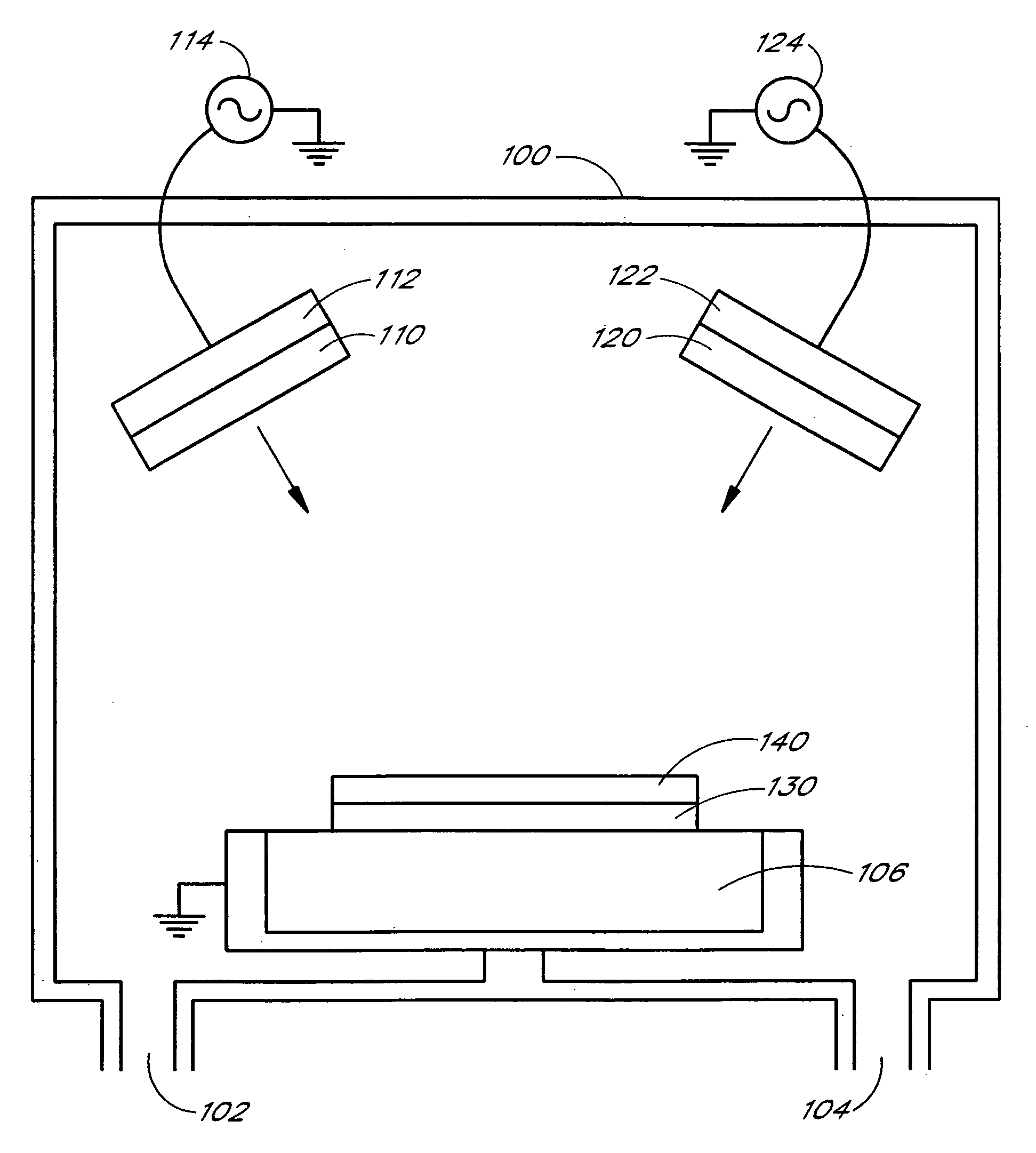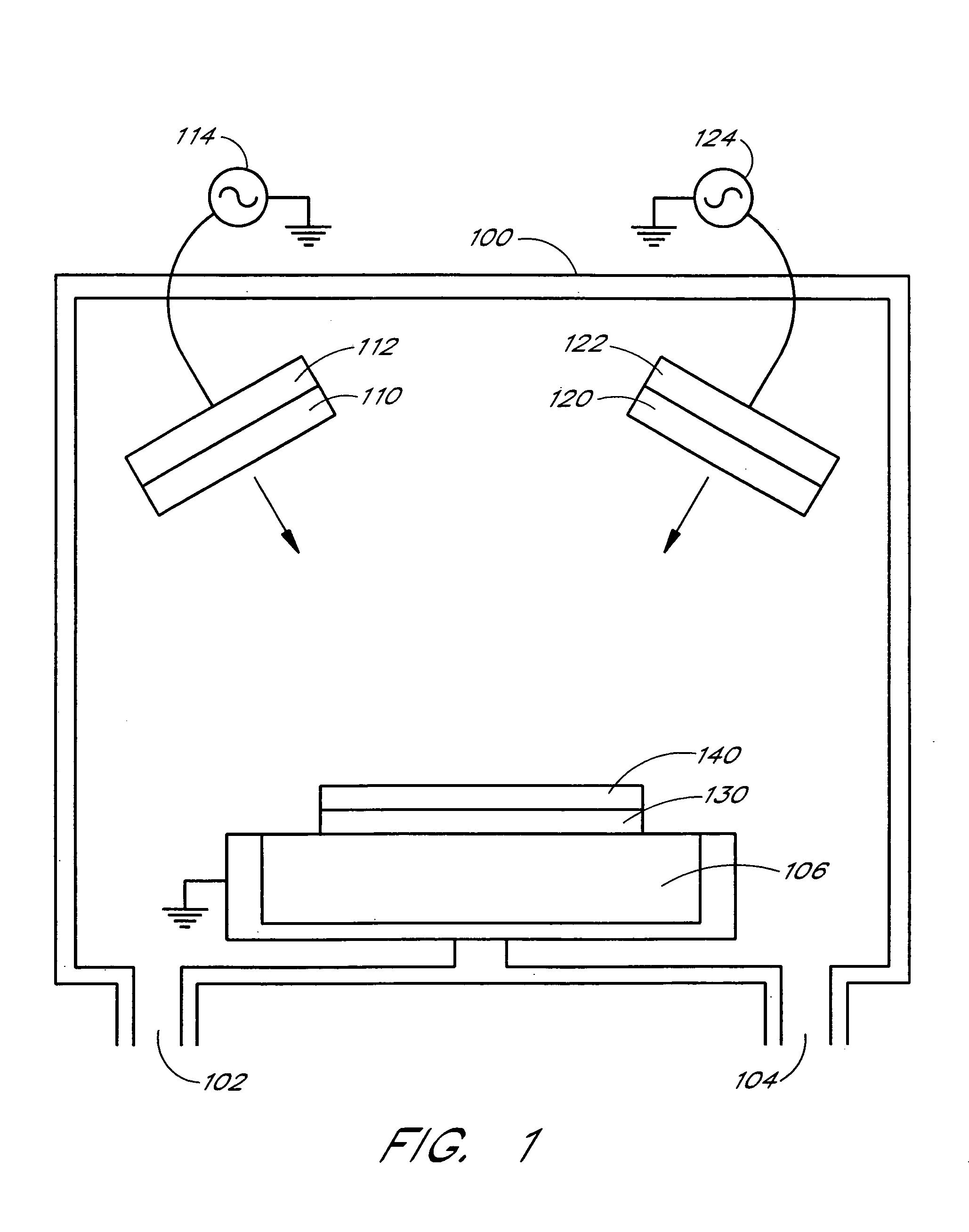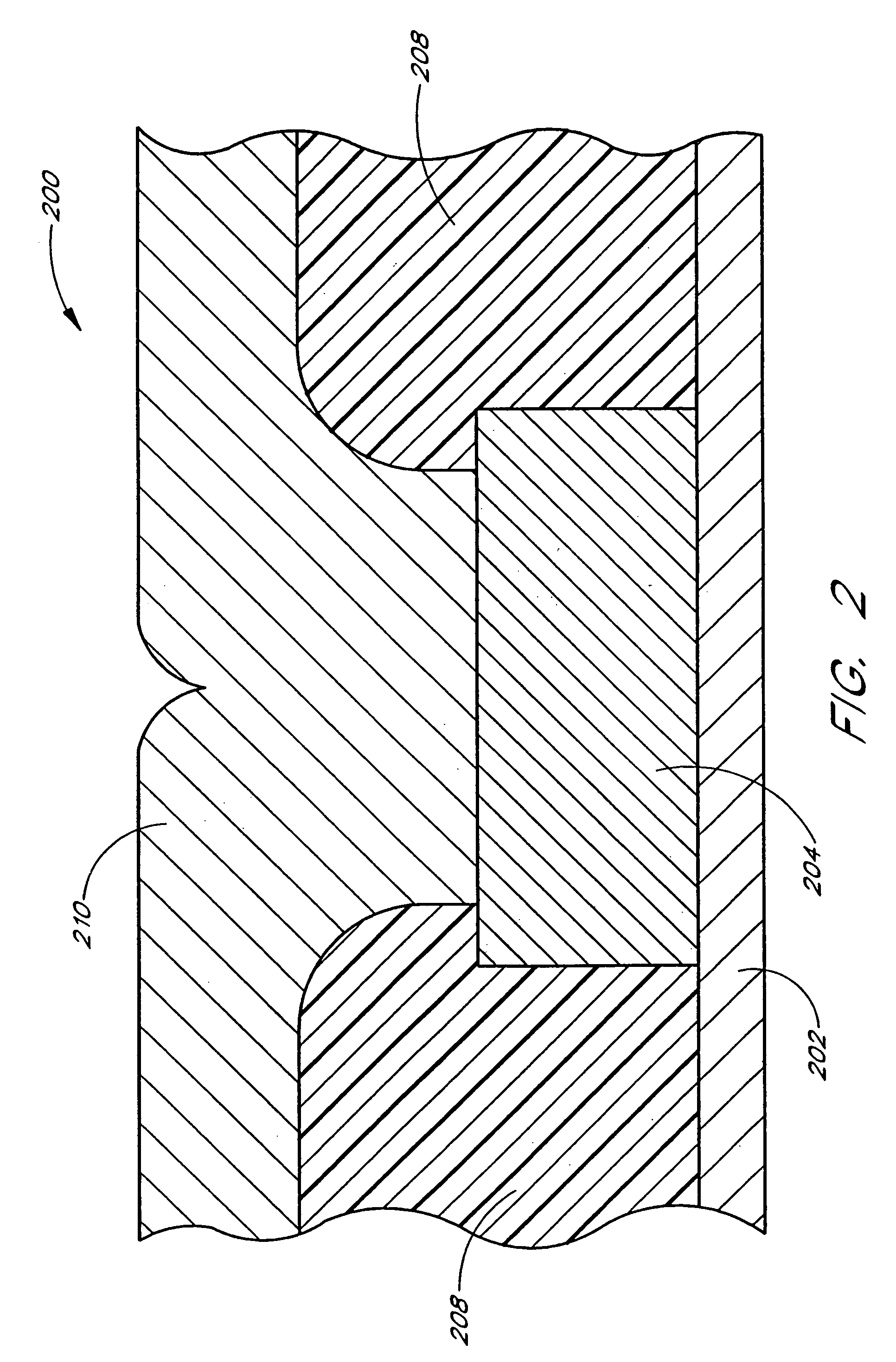Co-sputter deposition of metal-doped chalcogenides
a technology of metal-doped chalcogenides and co-sputtering, which is applied in the field of memory technology, can solve the problems of nonvolatile memory devices that retain data, lose data, and loss of data, and achieve the effect of high degree of depth-profile uniformity and precise and efficient control of constituent ratios
- Summary
- Abstract
- Description
- Claims
- Application Information
AI Technical Summary
Benefits of technology
Problems solved by technology
Method used
Image
Examples
Embodiment Construction
[0025]Although this invention will be described in terms of certain preferred embodiments, other embodiments that are apparent to those of ordinary skill in the art, including embodiments which do not provide all of the benefits and features set forth herein, are also within the scope of this invention. Accordingly, the scope of the present invention is defined only by reference to the appended claims.
[0026]Embodiments of the present invention allow a chalcogenide glass such as germanium selenide (GexSe1-x) to be doped with a metal such as silver (Ag), copper (Cu), or zinc (Zn) without the performance of an ultraviolet (UV) photodoping step. Other examples of chalcogenide glasses that can be used include germanium sulfide (GexSe1-x) and arsenic selenide (AsxSe1-x). The value of x can vary in a wide range. Although the value of x can theoretically range from 0 to 1, the fabrication of a programmable conductor random access memory (PCRAM) should maintain the value of x such that the u...
PUM
| Property | Measurement | Unit |
|---|---|---|
| volatile | aaaaa | aaaaa |
| power | aaaaa | aaaaa |
| electric field | aaaaa | aaaaa |
Abstract
Description
Claims
Application Information
 Login to View More
Login to View More - R&D Engineer
- R&D Manager
- IP Professional
- Industry Leading Data Capabilities
- Powerful AI technology
- Patent DNA Extraction
Browse by: Latest US Patents, China's latest patents, Technical Efficacy Thesaurus, Application Domain, Technology Topic, Popular Technical Reports.
© 2024 PatSnap. All rights reserved.Legal|Privacy policy|Modern Slavery Act Transparency Statement|Sitemap|About US| Contact US: help@patsnap.com










